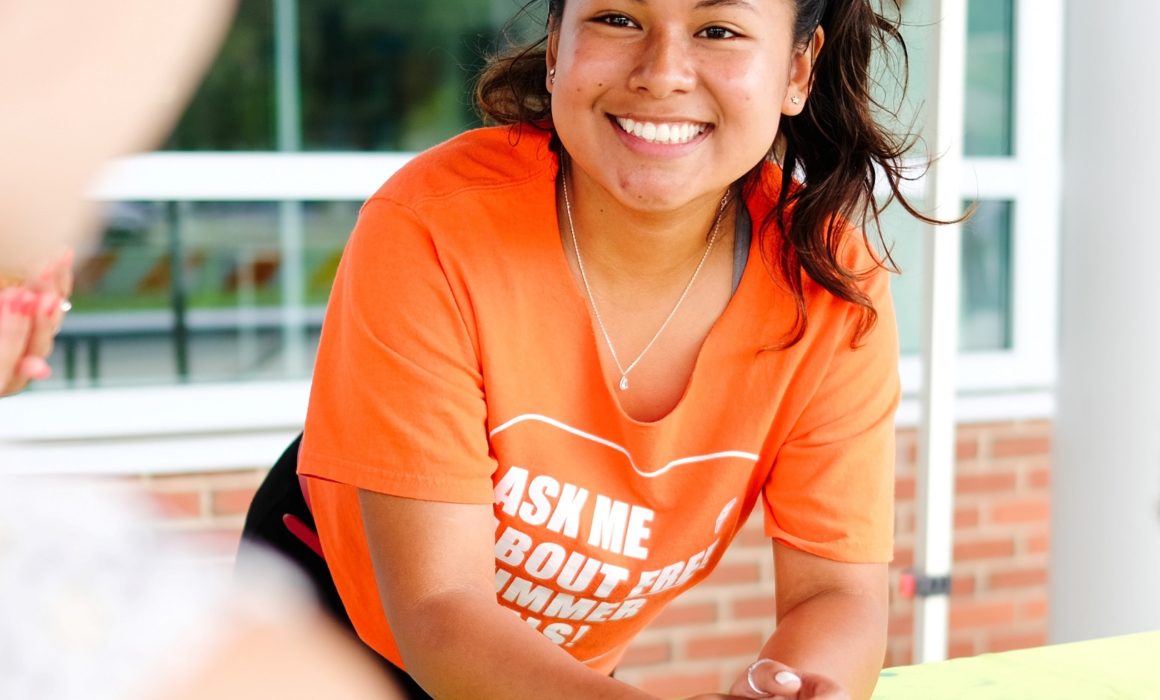Mentor Guides, Reassures New Students
In her three years as a student at Manchester Community College, Isis Murillo Bravo has requested more financial aid, struggled with several classes and dropped four, disliked a professor and questioned her competence for college-level work. She’s also worked full time, lived in her own apartment and worried about how she’d pay for college.
Bravo mentors several students like her – most first-generation, low-income students, many of whom are immigrants or the children of immigrants unfamiliar with the American college system. She moved to East Hartford from Peru at 13 to live with her father. His refusal to provide the tax return information necessary for Bravo to complete the Free Application for Federal Student Aid (FAFSA) prevented her from attending college right after high school. Instead, she worked during a gap year and eventually convinced her stepmother to give her the tax return data she needed to complete the FAFSA.
When mentoring prospective students last summer and first-year students this fall, she drew from her own challenges.
“A lot of them are going through this thinking they’re the only ones struggling,” Bravo says. “I don’t want these students to think they’re not college material. It all comes down to the resources they had in hand. I’ll send emails saying, ‘We’re all struggling. I still struggle. It’s not meant to be easy.’”
Bravo works as a mentor in Achieve Hartford’s Summer Transition and College Persistence programs, which provide students from Bloomfield, East Hartford, Hartford, Manchester, Vernon and Windsor mentoring support in the summer before college and their fall and spring semesters of their first year. She’s guided them to adjust to college expectations, where their professors won’t get after them if they miss class or an assignment. At the same time, she’s told them: If they need help from their professor or academic support services, all they have to do is ask. She’s told them about college resources, including staff who help students apply for food assistance benefits and scholarships.
One of her mentees, who had moved from El Salvador three years earlier, lacked the English language fluency to do well in the five courses in which he had enrolled. Bravo took him to the international student office and attended the appointment with him, acting as morale support and a translator. He learned he could enroll in English as a Second Language classes for which he was eligible for financial aid. He dropped his college classes and, with help from the international student office, the college waived the $50 fee per class. Once he reaches English 101 proficiency, she says, he plans to re-enroll.
Several of her mentees are working full- or part-time and caring for family while attending college with little to no family support. When she asked them at a recent mentee meeting to write down on a note card something they wanted to brag about, she says, “everyone had a really hard time acknowledging their successes. We have a couple of students who are bilingual. They didn’t see that as a strength. It was very eye-opening to have these conversations.”
She pointed out that just still being in school was something to be proud of, that some were artistic, bilingual or working. She encouraged them to take the time to be proud of themselves for being in college, reminding them some of their peers had already dropped out.
One mentee, a Latinx man, texted her afterward to say that because of his upbringing, it’s difficult for him to share his feelings and struggles in front of others. “I told him I don’t know what it’s like to be a man, but I see my dad not expressing his feelings and that led us to having a negative relationship,” Bravo says. “I try to show him he’s doing the right thing by trying to be more open about his mental health.”

